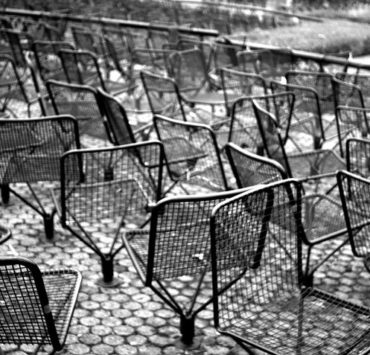
Several weeks ago I wrote about the need to stoke our anger and nurture it for a time in the future, post-pandemic, when we would need to draw on it to ensure that politicians did not claw back positive changes, or to force them to make necessary improvements. Think of the shambolic way in which long term care homes have been managed leading to the death far too many of our older generation. Little did I expect that my anger would explode during the pandemic, as I heard myself wishing for retribution and vengeance in the wake of George Floyd’s murder. Audre Lorde’s essay, The Uses of Anger, directed primarily to Black women, but relevant to all who care to listen to her wisdom helped to ground those feelings. It is distressing but also remarkable how applicable her words continue to be. Excerpts from that essay follow:
(A)nger expressed and translated into action in the service of our vision and our future is a liberating and strengthening act of clarification, for it is in the painful process of this translation that we identify who are our allies with whom we have grave differences, and who are our genuine enemies.… Anger is loaded with information and energy….We operate in the teeth of a system for whom racism and sexism are primary, established, and necessary props of profit.… Mainstream communication…wants racism to be accepted as an immutable given in the fabric of existence, like evening time or the common cold.…
We cannot allow our fear of anger to deflect us nor to seduce us into anything less than the hard work of excavating honesty…because, rest assured, our opponents are quite serious about their hatred of us and of what we are trying to do here.…This hatred and our anger are very different. Hatred is the fury of those who do not share our goals, and its object is death and destruction. Anger is the grief of distortions between peers, and its object is change.… Anger is an appropriate reaction to racist attitudes, as is fury when the actions arising from those attitudes do not change.…For it is not the anger of Black women which is dripping down over this globe like a diseased liquid. It is not my anger that launches rockets, spends over sixty thousand dollars a second on missiles and other agents of war and death, pushes opera singers off rooftops, slaughters children in cities, stockpiles nerve gas and chemical bombs, sodomizes our daughters and our earth. It is not the anger of Black women which corrodes into blind, dehumanizing power, bent upon the annihilation of us all unless we meet it with what have, our power to examine and to redefine the terms upon which we will live and work; our power to envision and to reconstruct, anger by painful anger, stone upon heavy stone, a future of pollinating difference and the earth to support our choices.
This morning I listened to Sweet Honey in the Rock singing “Ella’s Song” (in memory of the civil rights leader and activist Ella Baker): “Those who believe in justice cannot rest…” and all I could do was cover my face and weep, for so much that I find inexpressible. I’m particularly grieved by the fact that we’ve all been made unwilling accomplices in becoming voyeurs to the murder and lynching of Black people, even as we are grateful that through digital technology we now have the evidence of what Black and African descended folX have always known.
Can we, perhaps, console ourselves that we are witnesses, not voyeurs, in a system that has always fed on the trauma and death of Black bodies? I don’t know, but what I do know is that Black folX, supported by white allies, dragged the US, kicking screaming and murdering, to a better form of democracy, imperfect as it remains. Same with South Africa—not to mention the improvements we’ve been instrumental in making to Canadian society in areas such as policing and human rights. Oh, but how we long to rest, how we long to rest… And breathe.”
Image Credits: Bastian Greshake TzovarasM. NourbeSe Philip is an unembedded poet, essayist, novelist, playwright and independent scholar who lives in the space-time of the City of Toronto. She practiced law in the City of Toronto for seven years before becoming a poet and writer. She has published four books of poetry including the seminal She Tries Her Tongue; Her Silence Softly Breaks, one novel and four collections of essays. Her book-length poem, Zong!, is a conceptually innovative, genre-breaking epic, which explodes the legal archive as it relates to slavery. Her most recent work is Bla_K, a collection of essays on racism and culture.







